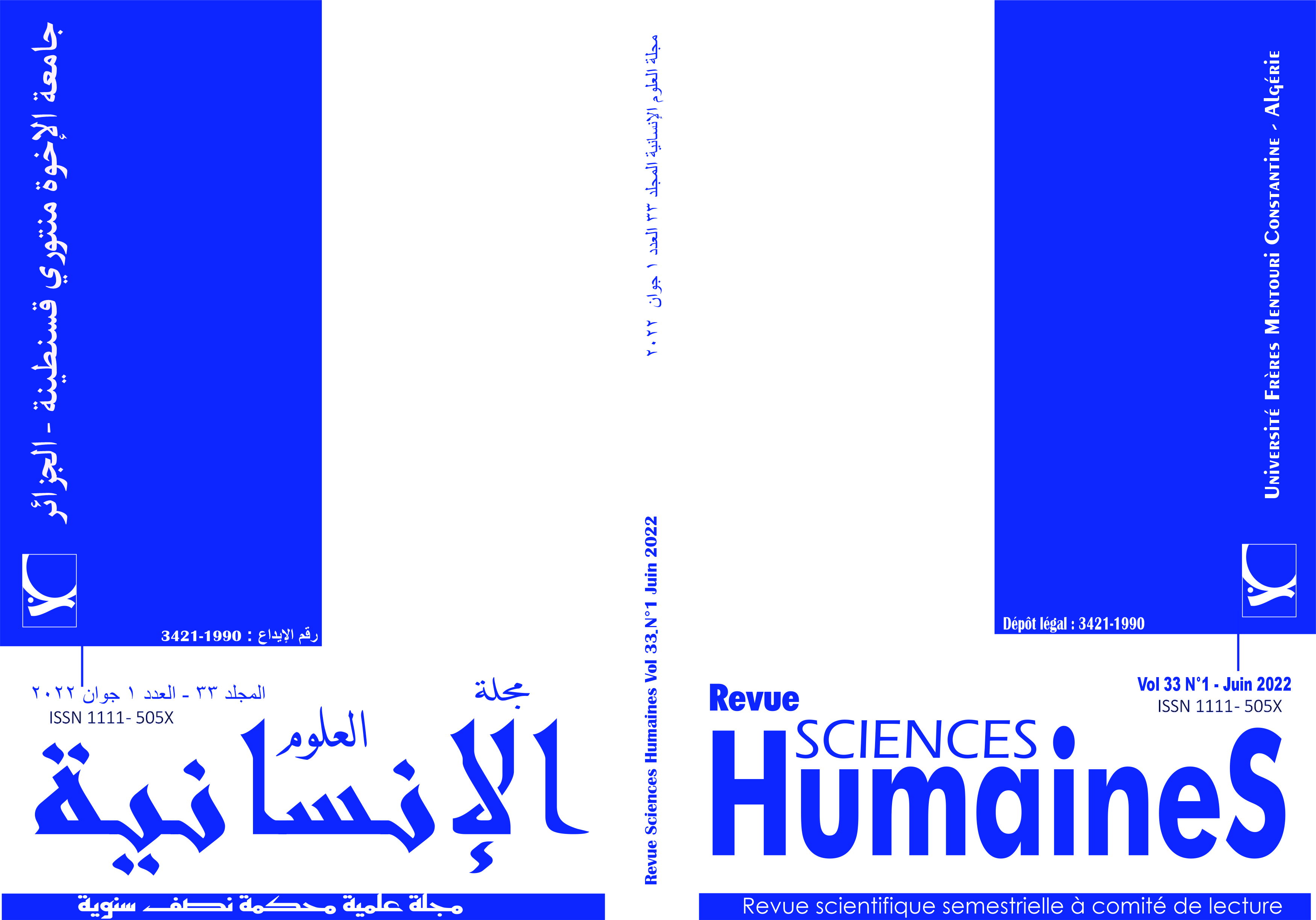A Cognitive Approach To Metaphor Translation : A critical analysis of “the city is a woman” metaphor translation in Yasmina khadra’s trilogy on the misunderstanding between Orient and Occident
Keywords:
Metaphor translation, figures of speech, cognitive theory, Mandelblit’s model, translation difficultiesAbstract
Metaphor translation has attracted a lot of attention from scholars in translation studies, both in theory and practice, because rendering the metaphor’s meaning, when translating, poses a real challenge for the literary translator.
This study aims to answer two major questions:
1- What makes the metaphor translation a problematic issue?
2- What are the best strategies that help the translator to overcome the difficulties involving the translation of metaphorical expressions?
After an overview of how metaphor has been dealt in different previous works, this paper discusses a new model towards metaphors translation by analyzing the occurrences of the metaphor "The City Is A Woman" in three novels of Yasmina KHADRA – his trilogy on the misunderstanding between East and West- and their translations into Arabic. The analysis relies on Lakoff and Johnson’s cognitive theory as well as Mandelblit’s cognitive translation hypothesis.
Downloads
References
أولا: المصادر والمراجع باللغة العربية
- القرآن الكريم
- أحمد حيدوش. شعرية المرأة و أنوثة القصيدة –قراءة في شعر نزار قباني- من منشورات اتحاد الكتّاب العرب، دمشق- 2001.
- جورج لايكوف و مارك جونسون، الاستعارات التّي نحيا بها، تر، ع.ا. جحفة، دار توبقال للنشر، المغرب، 2009.
- ياسمينة خضرا، أشباح الجحيم، تر. محمّد ساري، سيديا، ط1، الجزائر 2007.
- ياسمينة خضرا، سنونوات كابول، تر. محمّد ساري، سيديا، ط1، الجزائر 2007.
- ياسمينة خضرا، الصّدمة، تر. نهلة بيضون، سيديا، ط1، الجزائر 2007.
ثانيا: المصادر والمراجع باللغات الأجنبيّة
- الكتب:
*George, Lakoff, and Mark, Johnson, Metaphors We Live By, The University of Chicago Press, London, 2003.
*Henri, Meschonnic, Poétique du traduire, Editions Verdier, Paris, 1999.
*Peter, Newmark, Approaches to Translation, Pergamon Press, and Oxford - New York – Toronto – Sydney – Paris Frankfurt 2001.
*Yasmina khadra, L’attentat, éditions Sédia, Alger, 2006
*Yasmina khadra, Les Hirondelles de Kaboul, éditions Sédia, Alger, 2007.
*Yasmina khadra, Les Sirènes de Bagdad, éditions Julliard, Paris, 2006.
-المجلات و الدّوريات:
* Ali Al-Hasnawi,2007. "A cognitive approach to translating metaphors". Translation Journal.Volume 11, No. 3. Retrieved from
http://www.translationjournal.net/journal/41metaphor.htm
* Christina Schäffner. Metaphor and translation: some implications of a cognitive approach. Journal of pragmatics 36 (2004)- 1253-1269
*Doha Omar Mohamed, A Descriptive Study of the Translation of Metaphor from Arabic into English with Reference to Naguib Mahfouz’s Palace of Desire and Ibrahim Nasrallah’s Time of White Horses, مجلة كلية التّربية، جامعة عين شمس، العدد الرّابع و العشرون، الجزء الثّالث، 2018، ص ص 61-84.
* Elaheh FADAEE, Translation techniques of figures of speech: A case study of George ORNWELL’s1984 and Animal Farm. Journal of English and Literature Vol. 2 (8) . pp 174-181- 2011.
*Mandelblit, N. “The cognitive view of metaphor and its implications for translation theory” Translation and Meaning 3. Maastricht: Universitaire Press, (pp.483-495) . 1995.
* Mortaza TAHERI-ARDALI, Mohammed BAGHERI, Reza EIDY. Towards a new model of metaphor translation: A cognitive approach, (January 2013)
* Raymond Vanden, Broeck, The Limits of Translatability Exemplified by Metaphor Translation, Poetics Today, vol. 2, N°4, Translation Theory and Intercultural Relations, Summer – Autumn 1981.pp73-87- Duke University Press.
Downloads
Published
How to Cite
Issue
Section
License

This work is licensed under a Creative Commons Attribution-NonCommercial-NoDerivatives 4.0 International License.

















